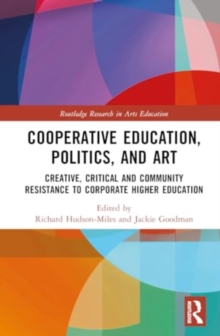With Mike Neary
In this chapter, we set out to provide an overview of recent critical responses to the corporatisation of higher education and the configuration of the student as consumer. We also discuss the relationship between the core activities of teaching and research and reflect on both nineteenth century discourse and more recent efforts to re-establish the university as a liberal humanist institution, where teaching and research are equal and fundamental aspects of academic life. While recognizing recent efforts which acknowledge and go some way to addressing the need for enquiry-based learning and constructivist models of student participation, we argue that a more critical approach is necessary to promote change at an institutional level. This critical approach looks at the wider social, political and economic context beyond the institution and introduces the work of Benjamin and other Marxist writers who have argued that a critique of the social relations of capitalist production is central to understanding and remodelling the role of the university and the relationship between academic and student. The idea of student as producer encourages the development of collaborative relations between student and academic for the production of knowledge. However, if this idea is to connect to the project of refashioning in fundamental ways the nature of the university, then further attention needs to be paid to the framework by which the student as producer contributes towards mass intellectuality. This requires academics and students to do more than simply redesign their curricula, but go further and redesign the organizing principle, (i.e. private property and wage labour), through which academic knowledge is currently being produced. An exemplar alternative organizing principle is already proliferating in universities in the form of open, networked collaborative initiatives which are not intrinsically anti-capital but, fundamentally, ensure the free and creative use of research materials. Initiatives such as Science Commons, Open Knowledge and Open Access, are attempts by academics and others to lever the Internet to ensure that research output is free to use, re-use and distribute without legal, social or technological restriction (www.opendefinition.org). Through these efforts, the organizing principle is being redressed creating a teaching, learning and research environment which promotes the values of openness and creativity, engenders equity among academics and students and thereby offers an opportunity to reconstruct the student as producer and academic as collaborator. In an environment where knowledge is free, the roles of the educator and the institution necessarily change. The educator is no longer a delivery vehicle and the institution becomes a landscape for the production and construction of a mass intellect in commons.
Published in The Future of Higher Education: Policy, Pedagogy and the Student Experience
Download this chapter
